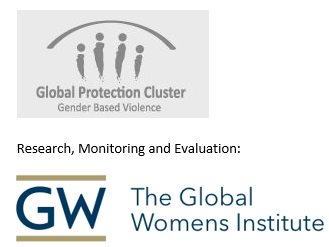- Programmes addressing and preventing VAWG must take into account the special considerations of older women as a specific population with unique needs and vulnerabilities. While much more research is needed, general recommendations include:
- Conduct a full needs assessment of older women in camps and conflict-affected areas.
Checklist for Older Persons in Internally Displaced Persons Camps
This checklist has been designed in order to gain a rapid overview of the situation of older people in an IDP camp.
Demographic data
- Is there demographic data available disaggregated by age and gender? If not could it be included in data collection?
- What is the number of unaccompanied older people?
- What is the number of children being cared for by older people?
- How many older headed households are there?
- How many housebound older people are there?
Health
- Are there special clinic days for older people?
- Are there outreach health services for the housebound?
- Are there drugs available to treat the common causes of morbidity amongst older people?
- What are main disabilities of older people? Is there a record in the camp?
- Are mobility aids available?
Nutrition
- Is the ration suitable for older people?
- Have older people been screened to enter feeding programmes?
Distributions
- Are there special provisions to avoid older people queuing for long periods of time?
- Are there special provisions to help older people carry loads back from distribution points
- Are NFIs appropriate for older people? Eg clothes, extra blanket etc.
Inclusion
- Are older people represented on committees (eg health, water, women's etc)?
- Has an older people's committee been established?
- Are older people active participants in camp activities, eg literacy projects, life skills, agriculture etc?
- Are older people represented as a vulnerable group at camp management level?
Social support
- Do older people receive support from family and neighbours?
- Who is collecting fuel and water for older people?
- Have older people been separated from their families?
Global Action on Aging and Help Age International, August 2005.
-
- Collect and monitor data disaggregated by age and sex, including ages 50-59, 60-69, 70-79, and 80+. Without this data, humanitarian agencies are unable to effectively understand and respond to the priorities of older men and women.
For examples see Mazurana, D., Benelli, P., Gupta, H. and Walker, P. 2011. “Sex & Age Matter: Improving Humanitarian Response in Emergencies.” Feinstein International Center, Tufts University.
- Organizations working in the VAWG sector should provide special training for staff on the prevention of violence against older women.
- Ensure services and information regarding available services are accessible to women of all ages, taking into account age-related factors such as physical and sensorial disabilities.
- Address the security of shelters and camps, and ensure protective mechanisms within the community take into account the particular vulnerabilities of older women.
Additional Tools
HelpAge International provides a report and guidelines for best practices regarding the needs of older people in humanitarian crises, including a vulnerability checklist a post-disaster needs assessment. HelpAge International. 2011. “Older People in Disasters and Humanitarian Crises: Guidelines for Best Practice.” London: HelpAge International.
- See training courses for development and humanitarian workers to ensure older people are included in their international emergencies work.
- For a series of briefs discussing key issues on gender and ageing, produced in preparation for the Second World Assembly on Ageing in Madrid in April 2002, see the Gender and Ageing Briefs.
- For more information and resources see HelpAge.
Global Action on Aging advocates for the adoption of more comprehensive and internationally binding policies addressing the problems and potential contributions of older persons at all stages of an emergency situation. Their website provides information on the legal and humanitarian aspect of older persons in emergency situations, materials that Global Action on Aging has submitted to international bodies, checklists for older persons in IDP camps, and recommendations for protection of older civilians in armed conflict.
